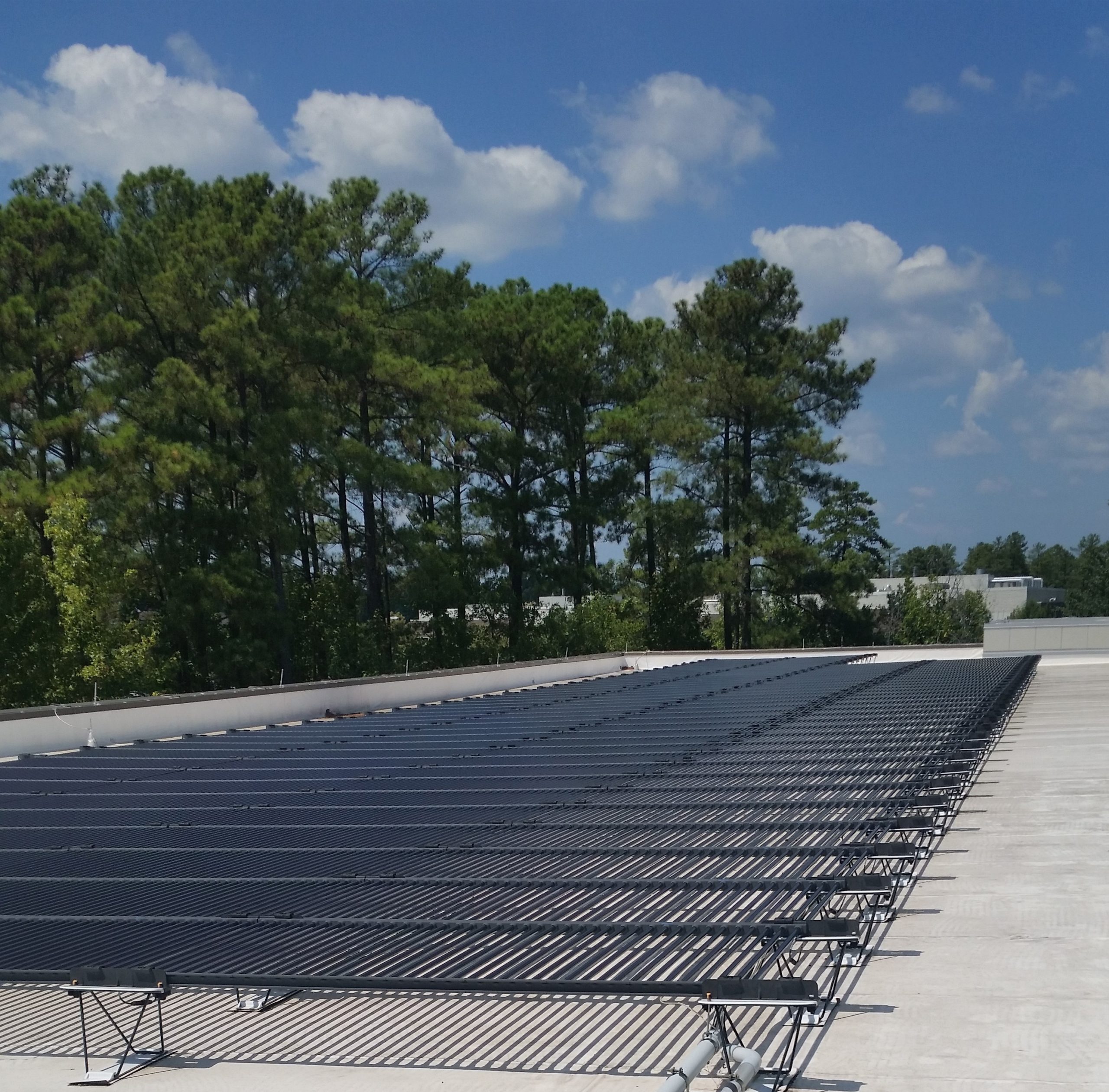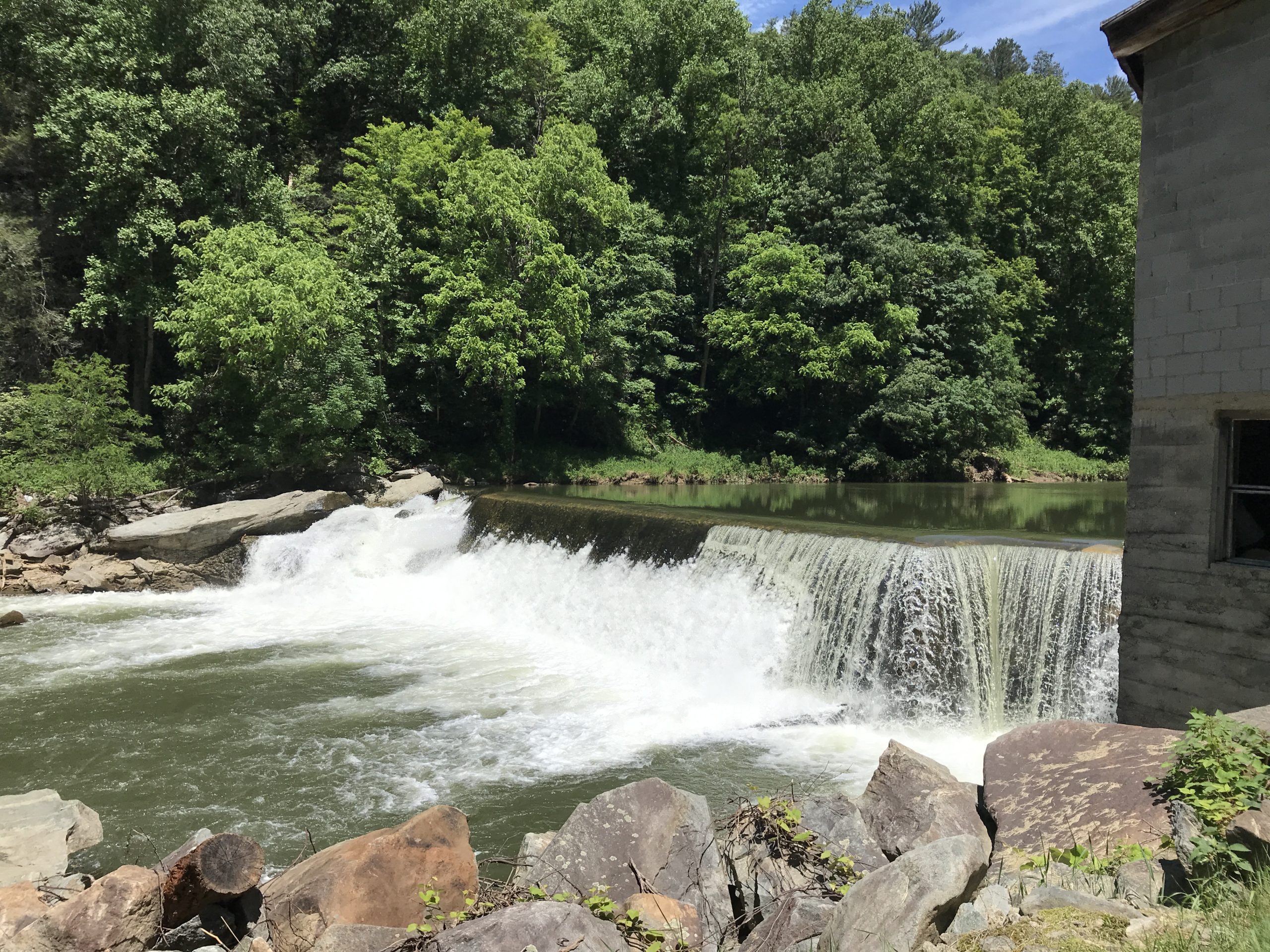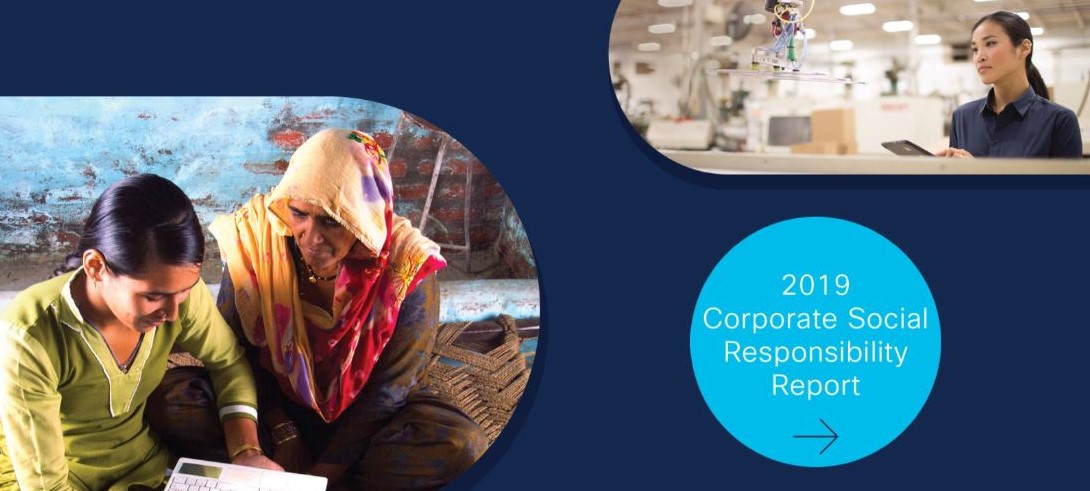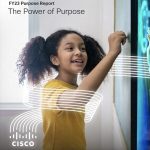The following is an excerpt from the 2019 CSR report.
In 2018, we announced goals to achieve 100 percent renewable energy, water neutrality, and zero waste by FY20 at Cisco’s campus in Research Triangle Park (RTP), North Carolina. The campus’s proximity to leading research universities makes it an ideal testing ground for sustainable improvements within our real estate operations. Here’s how we made progress in FY19:

Energy
Cisco’s U.S. facilities are already 100 percent powered by renewable electricity. At RTP, we’ve taken this a step further by using renewable energy generated locally, from on-campus solar, to participation in Duke Energy’s Green Source Rider Program. We’re exploring ways to purchase even more local renewable energy as we grow.
We’re also working to decrease our environmental impact more broadly. Cisco’s GHG emissions goals include:
- 60% reduction in global Scope 1 and 2 GHG emissions by FY22 (FY07 baseline)
- 85% of energy for global electricity demand purchased from renewable sources by FY22 (FY07 baseline)
- 30% reduction in Cisco supply chain- related Scope 3 GHG emissions
We made progress toward our FY22 goals of reducing our GHG emissions, increasing our use of electricity from renewable sources, and improving product energy efficiency.
Water

We’re managing our water footprint through conservation projects that decrease the amount of water we use. And restoration projects that restore local fresh water watersheds in North Carolina and the Southeast. Through these efforts, we expect to achieve water neutrality in FY20.
We also began treating the reclaimed water we use in our cooling towers with a plant-based water treatment solution instead of chemicals in FY19. So far, this solution has improved water quality and the efficiency of our systems.
To balance the remainder of both the fresh water and recycled water that we use in RTP, we are funding water restoration projects in North Carolina and the Southeast. These projects increase flows in rivers and streams, restore wetlands, and replenish groundwater to improve water security for ecosystems, communities, and economies. One project we are supporting is the removal of Ward Mill Dam, a decommissioned dam in the Watauga River Basin in North Carolina.
Waste

The campus has reduced plastic waste with biodegradable to-go boxes and reusable cups and mugs. Since April 2019, we’ve avoided sending over 10,000 plastic items to landfill each week. That’s 3 tons of plastic saved. Throughout the year, we diverted 68 percent of our waste.
Per the True Zero Waste Certification definition, zero waste means diverting 90 percent or more of all solid waste from landfill. To work toward this goal, we launched a campus composting program on Earth Day 2019. All to-go containers in the cafeteria have been replaced with biodegradable options, and we now provide mugs and reusable cups in cafés and breakrooms instead of paper cups.
We intend to build upon these successes over the next 12 months by switching plastic breakroom and catering items over to compostable options, removing paper cups from the remainder of the campus, and transitioning the campus from deskside trash bins to centralized waste.
Sustainable Design Features
The following sustainable design features have been incorporated into our LEED-NC Gold Certified data centers in RTP (as well as our North Carolina, and Allen, Texas data centers):
- Waterside and airside economization
- Variable frequency drives on major equipment, including pumps, chillers, and CRAH units
- Higher-voltage electrical service distribution of 480/277V; rack distribution of 415/230V
- Rooftop solar photovoltaic (PV)
- Heat recovery from data hall for office space use (in North Carolina)
- LED lighting
- Low-e glass windows
Download the full 2019 CSR report




Wont it be regressive if you remove a dam?